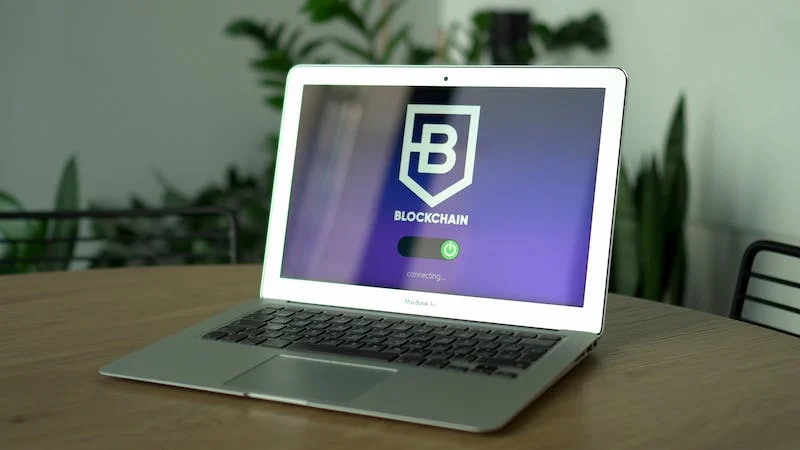Contents
Business using blockchain smart contracts
Businesses are increasingly utilizing blockchain smart contracts to improve efficiency, reduce costs, enhance transparency, and streamline various processes across different industries. Here are some examples of how businesses are using blockchain smart contracts:
- Supply Chain Management: Companies are using smart contracts to trace and verify the origins and journey of products within the supply chain. This ensures the authenticity and quality of products and minimizes fraud.
- Finance and Banking: Smart contracts are being used in financial services for various purposes, including automated loan disbursements, interest calculations, and even cross-border payments. They can reduce the need for intermediaries and speed up transactions.
- Insurance: Insurance companies are implementing smart contracts to automate claims processing and policy management. Claims can be verified and paid out automatically when the predefined conditions are met.
- Real Estate: Smart contracts can automate property transactions, including the transfer of ownership and payment processing, reducing the need for costly intermediaries like escrow services.
- Healthcare: Medical records can be securely stored and shared through blockchain smart contracts, ensuring patient privacy and data accuracy. Patients can also grant access to their records as needed.
- Legal Services: Legal contracts, such as wills and intellectual property agreements, can be executed and enforced automatically through smart contracts, reducing the potential for disputes and litigation.
- Digital Identity: Smart contracts can enable individuals to have control over their digital identities, granting and revoking access to personal information as needed.
- Voting Systems: Blockchain-based smart contracts can be used to create secure and transparent voting systems, reducing the risk of election fraud.
- Content Creators and NFTs: Smart contracts enable artists and creators to receive royalties automatically when their digital content is sold or shared as non-fungible tokens (NFTs).
- Energy Trading: In the energy sector, smart contracts are used to facilitate peer-to-peer energy trading, allowing individuals and businesses to buy and sell excess energy directly to one another.
- Automated Compliance: Companies are using smart contracts to ensure regulatory compliance by automating compliance checks and reporting.
- Tokenization of Assets: Physical assets like real estate, art, and commodities are being tokenized through smart contracts, making them more accessible for fractional ownership and trading.
These are just a few examples, and the potential applications of blockchain smart contracts are vast. However, it’s important to note that while smart contracts offer numerous benefits, they also come with technical, legal, and security challenges that need to be carefully addressed when implementing them in a business context.

The global corporate application of blockchain smart contracts
Several global corporations have embraced blockchain smart contracts to enhance their operations, security, and transparency.
- IBM and Maersk (TradeLens):
- IBM and Maersk collaborated to create TradeLens, a blockchain-based platform for global supply chain management. Smart contracts are used to automate and validate trade-related processes, reducing paperwork and improving transparency for all participants in the supply chain.
- Walmart (Food Traceability):
- Walmart has implemented blockchain technology to trace the origin of food products in its supply chain. Smart contracts help automate the tracking of food items, making it easier to identify and remove contaminated products from shelves quickly.
- JPMorgan Chase (Interbank Settlement):
- JPMorgan Chase has developed its blockchain platform called Quorum, which utilizes smart contracts for interbank settlement and securities transactions. This reduces processing times and minimizes the need for intermediaries.
- Vodafone (Identity Verification):
- Vodafone partnered with Energy Web Foundation to create a blockchain-based digital identity system. Smart contracts enable users to have control over their identity data and share it securely with authorized parties, such as telecom providers or government agencies.
- BHP Billiton (Mining and Supply Chain):
- BHP Billiton, one of the world’s largest mining companies, employs blockchain smart contracts to enhance the efficiency and transparency of its supply chain. This ensures responsible sourcing of minerals and simplifies logistics.
- Nestlé (Milk Supply Chain):
- Nestlé is using blockchain and smart contracts to track the production and distribution of milk in various countries. This technology enhances traceability and quality control in their dairy supply chain.
- Visa (Payment Settlement):
- Visa is exploring the use of blockchain and smart contracts for payment settlements. This can potentially reduce the time and complexity involved in cross-border transactions and settlements.
- Aeternity (Tokenization of Assets):
- Aeternity is a blockchain platform that enables the tokenization of assets such as real estate and art. Smart contracts are used to manage ownership, transfers, and even automate revenue-sharing among token holders.
- Intel (Supply Chain):
- Intel has developed a blockchain-based solution called “Sawtooth Supply Chain” to improve the traceability and transparency of goods in the supply chain. Smart contracts are used to automate processes and verify product authenticity.
- Ant Financial (Blockchain-Based Cross-border Remittances):
- Ant Financial, an affiliate of Alibaba Group, uses blockchain and smart contracts to facilitate cross-border remittances, reducing the time and cost associated with international money transfers.
These examples illustrate how various industries and global corporations are leveraging blockchain smart contracts to optimize their operations, enhance trust among participants, and drive innovation in their respective domains.




